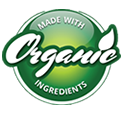Update on our certification status.
Janine reports; In August 2021 we decided to withdraw from Organic Certification as it was not serving us to the degree we had hoped. International sales require certification but domestic sales do not, therefore due to the high cost of certification (certified for 17 consecutive years) we have chosen to change the way we spend our profits. Instead of paying for the use of an Organic sticker we are now donating more profit to a number of charities. We will continue to use Organic Certified ingredients in our formula’s and assure you that nothing is changing in that respect.
The world is increasingly tuning into the idea that chemicals are not good for your body. As such, it is natural for you to seek ways to make sure the food you eat and the products you use come from organic sources. Organic certification is a way of proving that products are organic, which in turn allows you to make intelligent choices about the products you use. Companies who use the label have to go through a rigorous testing process, and understanding more about it can help you determine whether the products associated with this label are right for you.
Why Organic?
All farmers have to control growth, pests and diseases in some way. Organic farmers use naturally occurring products to achieve this, such as manure for their crops. In contrast, non-organic farmers may use chemicals and medicines you do not want to consume every day, such as growth hormones for meat. Many of the effects organic fans worry about are both short and long-term. Overuse of antibiotics has led to resistant bacteria, and there is evidence to suggest that the long-term build-up of growth hormones and pesticides can disrupt your endocrine system; that means they play havoc with your hormones.
Organic Beauty and Why it Matters
Your skin is the largest organ on your body, which is why you need to take good care of it in the right way. What you put onto your skin matters, and although the skin acts as a barrier between you and the outside world, it can absorb small amounts of chemicals. There are no legal requirements when it comes to using an organic label on a beauty product. This is why relying on the organic certification process is the simplest way to make sure you are applying the right products to your skin.
In recent years, the media has highlighted the link between non-organic beauty products and certain skin conditions. There is evidence to suggest that these products may exacerbate the symptoms associated with eczema, psoriasis, and similar conditions.
How Organic Certification Works
Technically, any farmer could claim to grow organic food and you would not know whether their farming and beauty standards meet the minimum requirements. That is why regulatory bodies exist: they inspect the farms and beauty product producers and make sure the practices stand up to the standards you expect as a consumer.
Organic certification process allows beauty product producers to claim that standards meet international and domestic standards. In order for this to happen, they must meet the following requirements:
- All the ingredients used in the product have been assessed to ensure they meet organic standards
- The labels on the products are clearly detailed and honest, allowing you to make an informed choice about what you are buying
- The non-organic ingredients present in the product are only there because there were no organic versions available
- The processed ingredients the manufacturer used are assessed